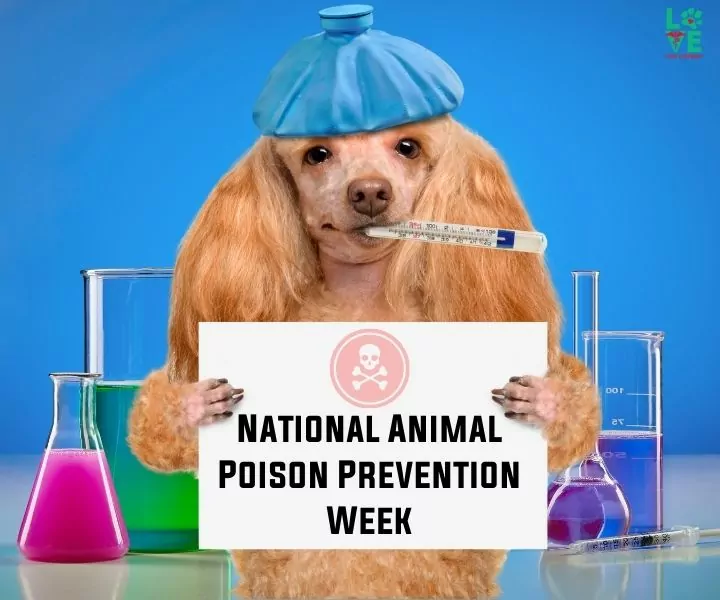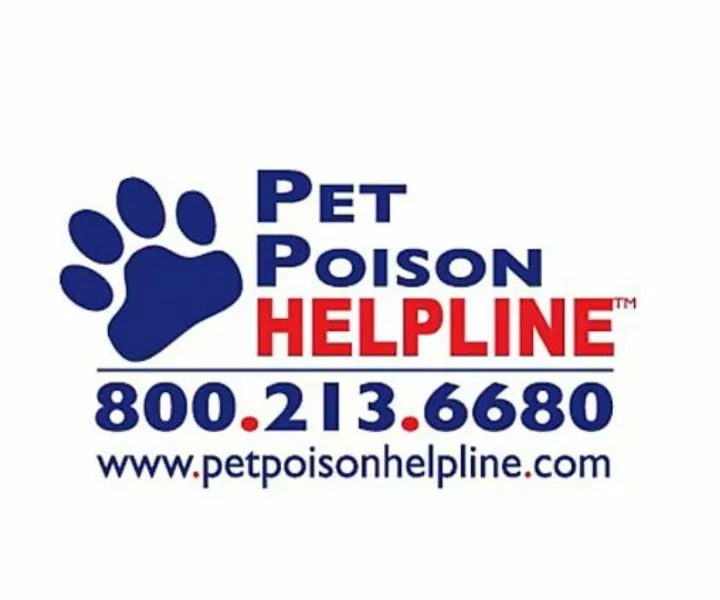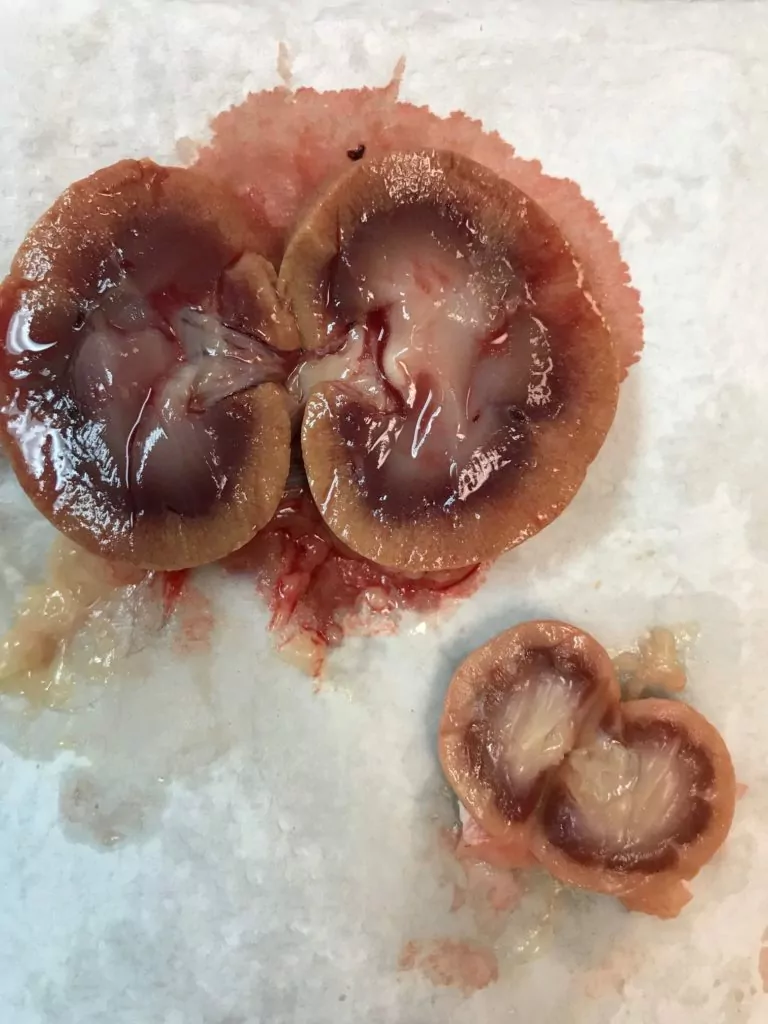What is National Animal Poison Prevention Week All About?
National Animal Poison Prevention Week is an annual event that was established in 1978. It forms part of National Poison Prevention Week in the US. It was created to raise awareness of the dangers posed by poisonous substances, or toxins, to pets and other animals.
The event first began as a national media campaign led by the American Veterinary Medical Association (AVMA), but it has since grown to become a national movement, with support from local and national animal welfare organizations.

The Aim of National Animal Poison Prevention Week
The purpose of National Animal Poison Prevention Week (NPPW) is to provide pet owners with information on the potential dangers posed by certain chemicals and products to their pets, as well as educate pet parents on responsible poison control measures.
During the week, organizations and individuals work together to raise awareness about poison prevention strategies and educate people on ways they can protect their pets from poisoning.
In addition to providing general poison prevention tips, NPPW also encourages people to get involved in their community by visiting veterinary offices and animal shelters to learn more about the importance of poison prevention.
Through national media campaigns and local events, NPPW promotes the safe use of substances such as insecticides, yard plants that are poisonous to animals, and household cleaners, as well as the prevention of accidental ingestion of poisons.
The theme of NPPW changes each year to reflect the current focus on national animal poison prevention. For example, in 2017 the theme was “Keep It Out of Reach” which encouraged pet owners to keep hazardous materials away from their pets and out of their reach.
For more information on this year’s theme, check out the website of National Poison Prevention Week.
The Sad Facts About Animal Poisoning
The support of national animal welfare organizations and local animal shelters is integral to the success of NAPPC each year. From sponsoring educational materials and holding events to providing resources and advice on poison prevention, these organizations help to ensure that National Animal Poison Prevention Week remains an important national event.
Ahna Brutlad (DVM, MS, DABT) from Pet Poison Helpline, a 24/7 animal poison control center, claims that every day of every week, they receive emergency calls from concerned pet owners all over the US on their poison control number.
The unfortunate truth is that most cases of pet poisoning could’ve been easily avoided, if the owners were a bit more informed and paid attention. Animal poison control should be exercised everyday for the safety of your furry friends!
National Animal Poison Prevention Week is a time to raise awareness about the dangers of poisonings and how to prevent them. Every year, poisonings kill more than 2,000 people and injure more than 250,000.
Most poisonings occur in homes, and many of them could be prevented if people knew how to protect themselves and their pets by using effective human and pet poison control measures.
So don’t wait until it’s too late and contact the pet poison helpline if you are ever in this situation.

Causes of Animal Poisoning
The majority of poisoning emergencies involve dogs (about 90 percent) because their curious nature makes them indifferent about what they put in their bellies. In 50 percent of the cases, the harmful substance was an ingested human medication toxic to dogs. Therefore it’s crucial to use poison control for dogs on a daily basis.
Most of the dogs accidentally swallowed antidepressants, OTC drugs with acetaminophen in them and various NSAIDs (Non-steroid anti-inflammatory drugs). Therefore, all owners must know that medications must be safely stored out of the pet’s reach.
The second most common cause of toxicity in dogs and cats are foods that are bad for animals, such as xylitol toxicity in dogs. Chocolate is the most dangerous food to dogs, especially dark chocolate containing larger amounts of theobromine which can be potentially fatal for pets.
Read this article for a comprehensive list on human foods toxic to dogs.
Toxicities due to ingestion of candies and sugarless gums containing xylitol are quite frequent as well. At last, grapes and raisins should be treated in the same manner as medication because they cause kidney failure in dogs and there have been many cases where they proved to be fatal.

Rarely animal poison control centers are contacted when dogs consumed rodenticides, insecticides, disinfectants, and other cleaning solutions in the household. In any case, an owner suspects poisoning of any kind it should immediately reach for professional veterinary help.
Contributing to National Animal Poison Prevention Week
First of all start from your own home. If you have a pet, a dog or a cat, find a detailed list of the most common foods and household items toxic to each species. After you are finished with the homework you need to pet-proof every single part of the house.
All toxic food must be stored away from curious sniffs and all cleaning solutions and other chemicals should be unreachable kept away. Check the garbage for items toxic to pets as well. The same goes for medications and supplements.
If you are a vet professional you probably discussed the topic of toxicity with pet owners many times. However, you cannot repeat the same tips over and over again.
Well, the third week of March is the time to make flyers and pamphlets where you will put the most important information on toxicity in pets, food toxic for pets and keeping them safe in your home. This way you will make sure the complete information gets to every owner.
There are several things you can do to protect yourself and your family from accidental poisonings. First, always keep poisonous substances locked up and out of reach of children. Second, never eat or drink anything you don’t know the ingredients of. Third, if you think someone has been poisoned, call 911 immediately.
2024 National Poison Prevention Contest

What would an important week like this one be, without a contest? Listen up k12 US students, because we have some exciting news to share!
If you fancy yourself a creator, now is your chance to make a change and score some coin in the process.
Here’s how:
Grade 5-12 Video Contest*
What: Submit a short video (2 minutes or less)
How:
- Make a video by yourself or get together with your friends in a group of up to 4.
- For groups, pick one of you to be the lead producer.
- Come up with your content idea for your video. The best videos tell a story. Some possible ideas to get you started:
- Tell your friends about poison dangers lurking at home, at school, or even outdoors.
- Share some tips to stay safe from poisoning.
- Shoot the video
- Make sure you have all the necessary elements listed
- Submit the video by February 20, 2024 – further instructions to be provided soon
All Videos Need To Include:
- The Poison Help line number 1-800-222-1222
- The Poison Help logo, which can be found HERE
Reminder: Videos should NOT include any images, gifs, clips or other elements of any commercial brands or characters.
Need some inspiration?
- Visit the interactive Virtual Escape Room from America’s Poison Centers!
- Explore PoisonHelp.org the official site of America’s Poison Centers, to learn more about prevention and trends in poison prevention.
Grades K4*
What: A poster or drawing
How:
- Make a poster or drawing that tells your friends about poison dangers lurking at home, at school, or even outdoors. Or you can draw a tip that they can use to stay safe from poisoning.
- Make sure you have included all the necessary elements listed
- Submit the poster or drawing by February 20, 2024 – further instructions to be provided soon
All posters need to include:
- The Poison Help line number 1-800-222-1222
- The Poison Help logo, which can be found HERE
Reminder: Posters should NOT include any images, gifs, clips or other elements of any commercial brands or characters.
Need some inspiration?
- Visit the interactive Virtual Escape Room from America’s Poison Centers!
- Explore PoisonHelp.org the official site of America’s Poison Centers, to learn more about prevention and trends in poison prevention.
**The contest is only open to students residing in the US.**
The Final Say
If you liked this article, take a look at our article on “Human Foods That Are Toxic to Dogs“.
